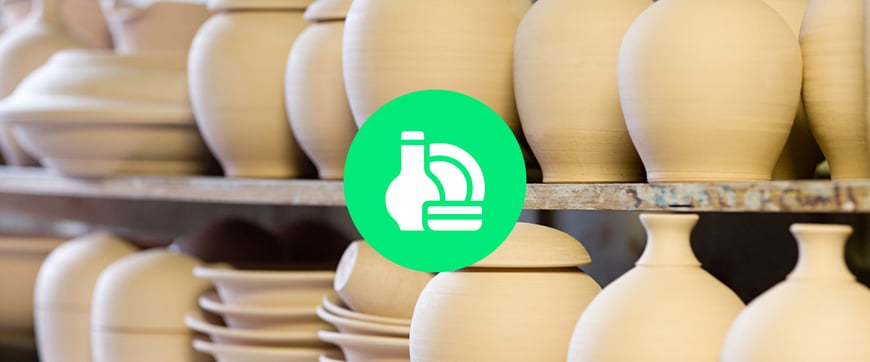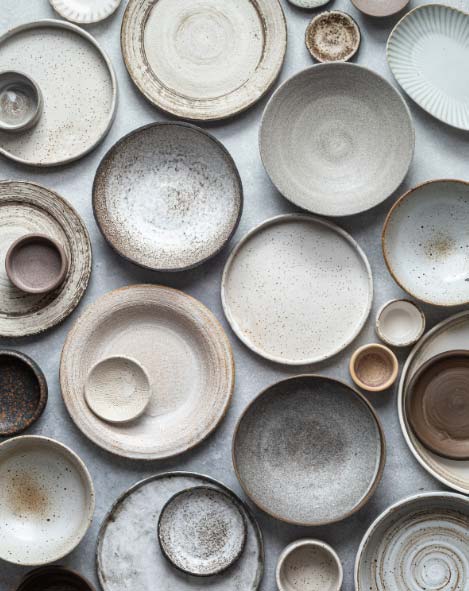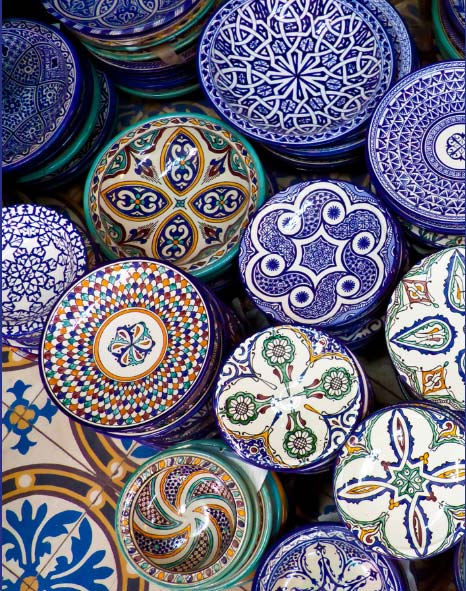Breaking the mold.
Get quotes for quality checks for ceramic and pottery shipments.
Get quotes for qualified professionals to inspect your ceramic and pottery imports.
Pre-shipment inspection of ceramics and pottery is an essential quality assurance step in the supply chain that ensures the excellence of these exquisite products before they reach the hands of customers. During this meticulous process, qualified inspectors thoroughly examine each item in the shipment, paying close attention to details such as glaze, surface finish, cracks, chips, and other defects. The inspection also verifies compliance with international quality and safety standards, guaranteeing that the products meet all requirements for global trade. By addressing potential transportation risks and identifying flaws beforehand, pre-shipment inspection significantly reduces the likelihood of costly returns and disruptions in the supply chain. Ultimately, this crucial inspection process instils confidence in both suppliers and customers, reinforcing the reputation of businesses in the ceramics and pottery industry as reliable, quality-driven entities.
Are you a business owner or an importer dealing with ceramics and pottery? Do you often find yourself wondering if your shipments will meet the desired quality standards? If so, pre-shipment inspection is an indispensable process that can safeguard your interests and ensure your customers receive top-notch products.
Why do you need an inspector?
Ceramics and pottery are products of artistry, skill, and precision. Any flaw or imperfection can significantly impact the overall value of the product. This is where a pre-shipment inspection comes into play. An experienced inspector meticulously examines each item in your shipment, ensuring they meet the defined quality criteria. From checking the glaze and surface finish to inspecting for cracks, chips, and defects, the inspector leaves no stone unturned in ensuring the products' excellence.
Compliance with International Standards:The global market demands adherence to specific quality and safety regulations. Non-compliance can lead to expensive recalls, legal issues, and damage to your brand's reputation. By engaging a pre-shipment inspector, you enlist an expert who understands these international standards and can verify that your ceramics and pottery meet all the requirements. This not only secures your position in the market but also ensures the safety and satisfaction of your customers.
Identifying Transportation Risks:The journey from the production site to the destination involves various stages of transportation. During transit, ceramics and pottery are vulnerable to handling and environmental hazards. A pre-shipment inspection helps identify potential risks such as improper packaging, inadequate cushioning, or suboptimal container conditions. Addressing these concerns in advance prevents costly damages and protects your investment.
Reducing Costly Returns:Imagine receiving a shipment of ceramics and pottery only to discover that a substantial portion of it is flawed or damaged. The inconvenience of returns not only disrupts your supply chain but also incurs significant costs in handling, shipping, and restocking. With a pre-shipment inspection, you can detect and rectify any issues before the products leave the manufacturer's facility, reducing the chances of returns and streamlining your business operations.
Strengthening Supplier Relations:Consistent quality and timely deliveries are essential for building strong relationships with your suppliers. When you employ a pre-shipment inspector, you send a clear message to your suppliers that you are serious about the quality of the products you receive. This encourages them to prioritize excellence in their production process, strengthening the bond between your businesses and fostering long-term collaboration.
Measurement and Dimensional Checks: Precise measurements to ensure the products meet the specified dimensions and tolerances.
Surface Quality Testing: Assessing the smoothness and uniformity of the product's surface and evaluating the glaze application.
Weight Verification: Weighing each item to confirm they match the specified weight requirements.
Tap and Sound Test: Gently tapping the ceramics or pottery to detect any hidden cracks or structural weaknesses, while also assessing the sound produced, which can indicate its quality and solidity.
Water Absorption Test: Immerse the product in water to evaluate its water absorption rate, essential for certain ceramic applications like tiles or tableware.
Durability Testing: Simulating handling and transportation conditions to identify any potential damages that may occur during transit.
Packaging Inspection: Evaluating the packaging to ensure adequate protection and proper labelling for shipping and handling instructions.
Sample Testing: Randomly selecting samples from the shipment for further laboratory testing, such as material composition or chemical analysis.
Quantity Verification: Counting and confirming the number of items in the shipment to ensure it matches the order quantity.
Functionality Testing: For functional ceramics like cookware, ensuring that handles, lids, and other components function correctly and safely.
Documentation Review: Cross-checking documentation, including certificates, permits, and shipping documents, to ensure compliance with legal and regulatory requirements.
Barcode and Label Verification: Confirming that barcodes and labels are accurate and correspond to the correct product.
Random Sampling: Selecting items randomly from the shipment to represent the overall quality of the entire batch.
Why Choose Us
Global Network of Professionals
Vetted and registered professional's in a worldwide network.

Define your own
Timeline
Define the timeframe for inspections, assign deadlines for the report and submissions!

Manage from one Dashboard
Appoint multiple inspectors in multiple countries to inspect multiple specifications, and manage them all from one dashboard!








